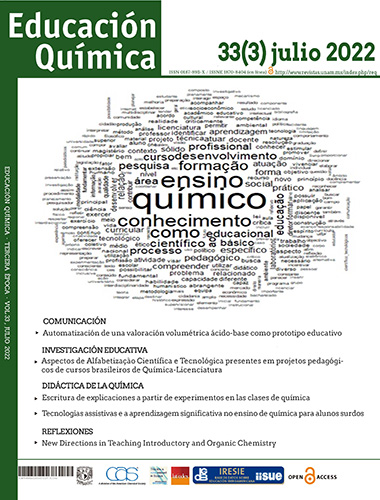Assistive technologies and significant learning in chemistry teaching for deaf students
Main Article Content
Abstract
This research evaluated the use of assistive technologies in the construction of previous organizers in Chemistry Teaching for a deaf student in the 3rd year of high school, from a state school in Boa Vista, Roraima, Brazil. A didactic sequence based on meaningful learning was organized to address the content of oxygenated functions with the deaf student, and to evaluate the learning process using a Portuguese text-to-lbs translator app. Attention was focused on assistive technology due to the various possibilities of use, which can be used as an aid to the teacher in the absence of a Libras Interpreter Translator (TIL). The results showed that the use of the application combined with teaching strategies that consider the specificities of these students and based on an educational theory, is an element that enhances pedagogical practices, in the construction of strategies and resources aimed at the cognitive development of students, whether they deaf or not.
Article Details
Citas en Dimensions Service

Educación Química por Universidad Nacional Autónoma de México se distribuye bajo una Licencia Creative Commons Atribución-NoComercial-SinDerivar 4.0 Internacional.
Basada en una obra en http://www.revistas.unam.mx/index.php/req.




